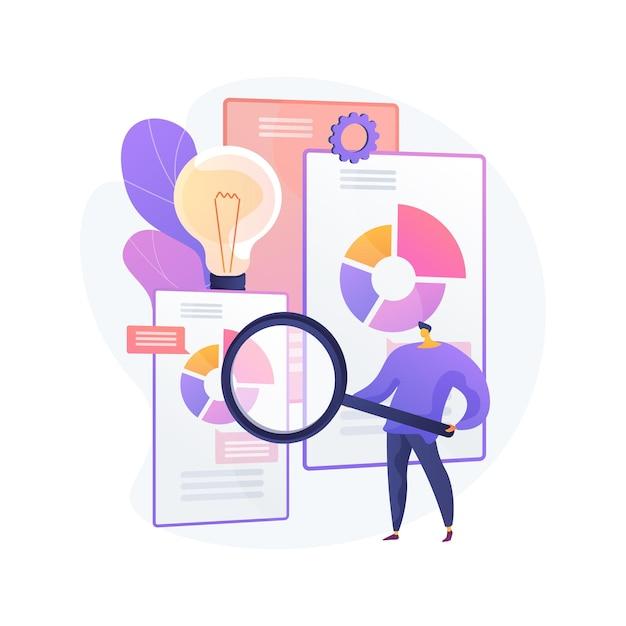In today’s rapidly evolving world, research methodology plays a crucial role in uncovering new knowledge and advancing various fields of study. Whether you’re a seasoned researcher or just beginning your academic journey, understanding the elements of research methodology is essential for conducting reliable and impactful studies.
Research methodology refers to the systematic process of gathering, analyzing, and interpreting data to answer research questions or test hypotheses. It provides a framework for researchers to design their studies, select appropriate methods, and draw valid conclusions. To grasp the intricacies of research methodology, we will explore its types, essential elements, and characteristics that constitute a good research methodology.
In this blog post, we will delve into the world of research methodology, exploring how it shapes the way we approach scientific inquiry and unlocking the potential for groundbreaking discoveries. So, whether you’re preparing for your next academic paper or simply curious about the world of research, this guide will equip you with the knowledge and tools to navigate the realm of research methodology with confidence and precision.
So, let’s dive in and explore the fundamentals of research methodology together.

Table of Contents
- Introduction
- Types of Research Methodology
- Essential Elements of Research Methodology
- Characteristics of a Good Research Methodology
- Methodology in Practice: Examples
- Research Methodology: A PDF Guide
- Classifications of Research: Exploring Different Approaches
Stay tuned as we journey through each section, uncovering valuable insights and practical tips that will empower your research endeavors.
What are the Elements of Research Methodology?
When diving into the world of research, it’s important to have a solid understanding of the elements that make up the methodology. These elements form the backbone of any research endeavor and serve as a roadmap for the entire process. In this section, we’ll explore five key elements of research methodology that will help you conduct effective and meaningful studies.
1. Research Design: Setting the Stage
Before embarking on your research journey, it’s crucial to establish a clear research design. This is like designing the set for a theatrical play; it provides the structure, direction, and purpose of your study. A well-crafted research design ensures that your data collection methods align with your research goals and questions. Think of it as your research GPS—a reliable guide that keeps you on track as you navigate the vast sea of data.
2. Data Collection: The Artifact Hunters
Now that you have your research design in place, it’s time to embark on the thrilling quest for data. Just like intrepid artifact hunters, researchers employ various tools and techniques to gather the evidence needed to answer their research questions. Whether it’s surveys, interviews, observations, or experiments, each method serves as a valuable tool in uncovering the hidden treasures that lie within the data.
3. Data Analysis: Unraveling the Enigma
After collecting the data, the next step is to unravel the mysterious enigma it holds. This is where researchers don their detective hats and embark on an exciting journey of analysis. By employing statistical methods, qualitative frameworks, or other analytical approaches, researchers gain insights into the patterns, trends, and relationships within their data. It’s like deciphering a secret code, turning a jumble of numbers and words into meaningful discoveries.
4. Validity and Reliability: The Truth Seekers
As truth seekers in the realm of research, it’s vital to ensure that your findings are both valid and reliable. Validity is the extent to which your study measures what it intends to measure, while reliability refers to the consistency and stability of your results. Just like Sherlock Holmes demanding evidence to solve a case, researchers must rigorously assess and validate their methods to ensure the accuracy and trustworthiness of their findings.
5. Ethical Considerations: The Guardians of Morality
Last but certainly not least, ethical considerations take center stage in the world of research. As responsible researchers, it is our duty to protect the rights and well-being of our participants. This means conducting studies with integrity, obtaining informed consent, maintaining confidentiality, and ensuring that our research aligns with ethical guidelines. Think of ethics as the moral compass that guides us on our research journey, ensuring that we traverse the path of knowledge with integrity and compassion.
In conclusion, understanding the elements of research methodology is vital for any aspiring researcher. By familiarizing yourself with the research design, data collection, analysis, validity and reliability, and ethical considerations, you’ll be equipped to embark on your own research adventures with confidence and finesse. So grab your magnifying glass, put on your thinking cap, and let the exploration of knowledge begin!
